When life gets overwhelming, a furry friend can make all the difference. Emotional support dogs are wonderful companions that help ease symptoms of mental health challenges like anxiety and depression. Unlike service dogs, which undergo specialized training to perform specific tasks, therapy dogs offer comfort and companionship in places like hospitals, schools, and assisted living facilities.
According to Dr. Mary Burch from the American Kennel Club, therapy dogs volunteer with their owners to bring joy and support to people who need it most. While every dog can provide cuddles and comfort, certain breeds naturally shine as therapy dogs thanks to their gentle nature and calm temperament.
If you’re curious about which dog breeds are best suited for therapy and counseling roles, this guide will walk you through the top candidates who have a special gift for healing hearts and lifting spirits.
Dog Breeds For Therapy And Counseling
1. Golden Retriever
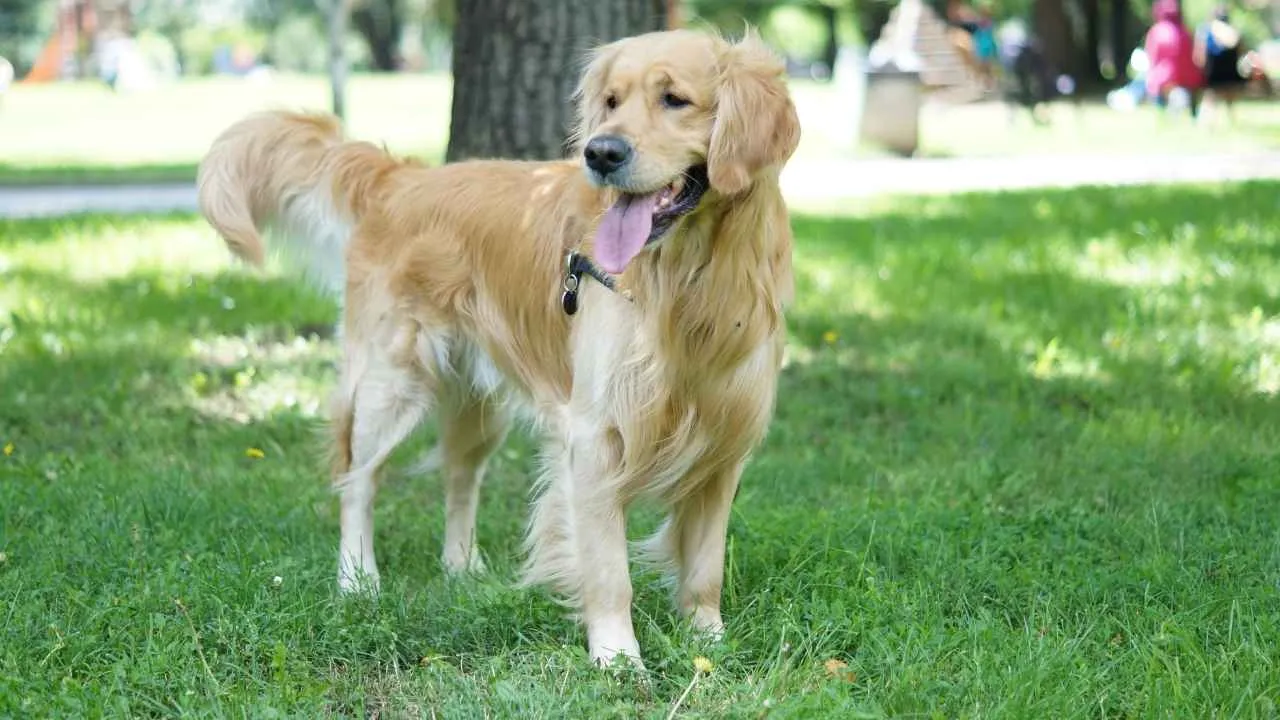
Golden Retrievers are beloved for their friendly and gentle nature, making them one of the most popular dog breeds in the US, and they excel in therapy and emotional support work. Their natural instinct to comfort and connect with people shines through in every interaction.
Known for being intelligent and eager to please, they are easy to train and reliably calm, which makes them a great choice for first-time dog owners and therapy dog roles alike.

As noted by Britannica, these dogs have a warm, affectionate personality that instantly bonds with people, whether it’s a child, an elderly person, or someone facing emotional struggles. Their patience and calm demeanor help them stay composed even in stressful environments, while their empathy allows them to sense when someone is upset and offer comfort naturally.
Therapy dogs like Golden Retrievers bring more than just companionship. Spending time with them can reduce stress, lower blood pressure, and boost mood by releasing feel-good hormones.
Their presence offers comfort, eases loneliness, and encourages routine and mental stimulation for people dealing with anxiety or depression.
Thanks to their highly intuitive and loving nature, Golden Retrievers excel as emotional support dogs. Their loyalty and gentle temperament create a powerful, healing bond that provides meaningful comfort to those who need it most.
2. Labrador Retriever

Labrador Retrievers are another popular dog breed thanks to their loyalty, kindness, and affectionate nature. They have a special ability to sense human emotions and provide unconditional love, making them fantastic emotional support animals.
While similar to Golden Retrievers, Labradors have shorter, easier-to-maintain coats and tend to be a bit more independent rather than clingy.
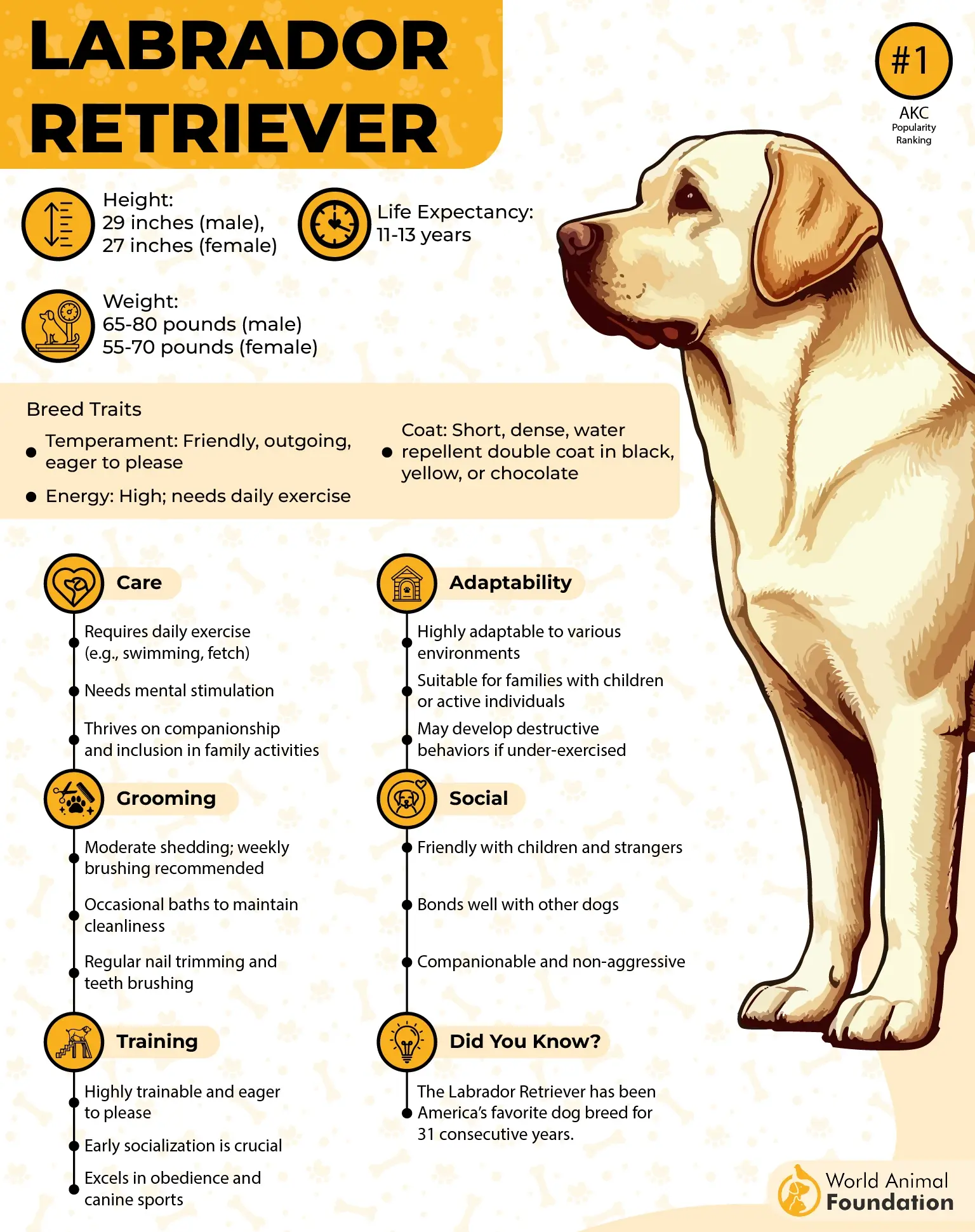
Labradors’ friendly disposition makes them great therapy dogs, often assisting therapists, social workers, and even first responders. Their calm presence helps people feel at ease during emotional or stressful situations, making them a comforting support in a wide range of settings.
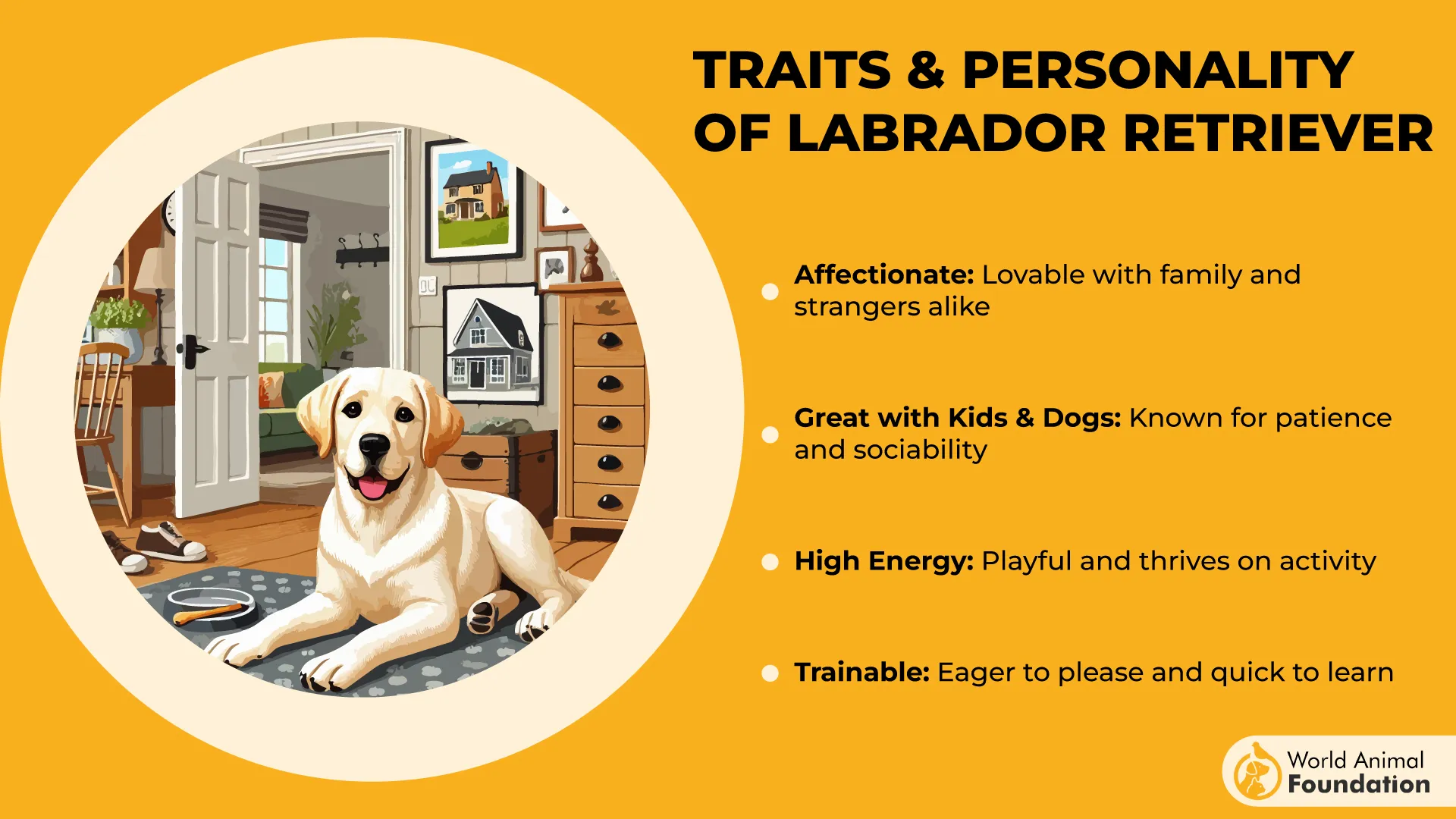
They’re especially helpful for individuals with PTSD, autism, or anxiety, thanks to their intuitive and affectionate personalities. Labradors can sense emotional changes and respond with gentle, grounding behaviors that help calm and center their humans during tough moments.
Labs are highly intelligent and love to please, which makes training them a breeze, especially when it involves praise and treats. They quickly pick up on emotional support tasks like alerting to stress, fetching medication, or offering comforting contact.
As former working dogs, Labradors are built for service roles, but they’re just as happy to relax and be loving companions when the workday ends. This ability to balance activity and downtime makes them ideal for both structured support and everyday companionship.
3. Cavalier King Charles Spaniel

Cavalier King Charles Spaniels are small dogs with big hearts, known for their gentle and affectionate nature. They thrive on close companionship and form deep bonds with their owners, making them perfect emotional support pets, especially for those looking for a smaller breed.
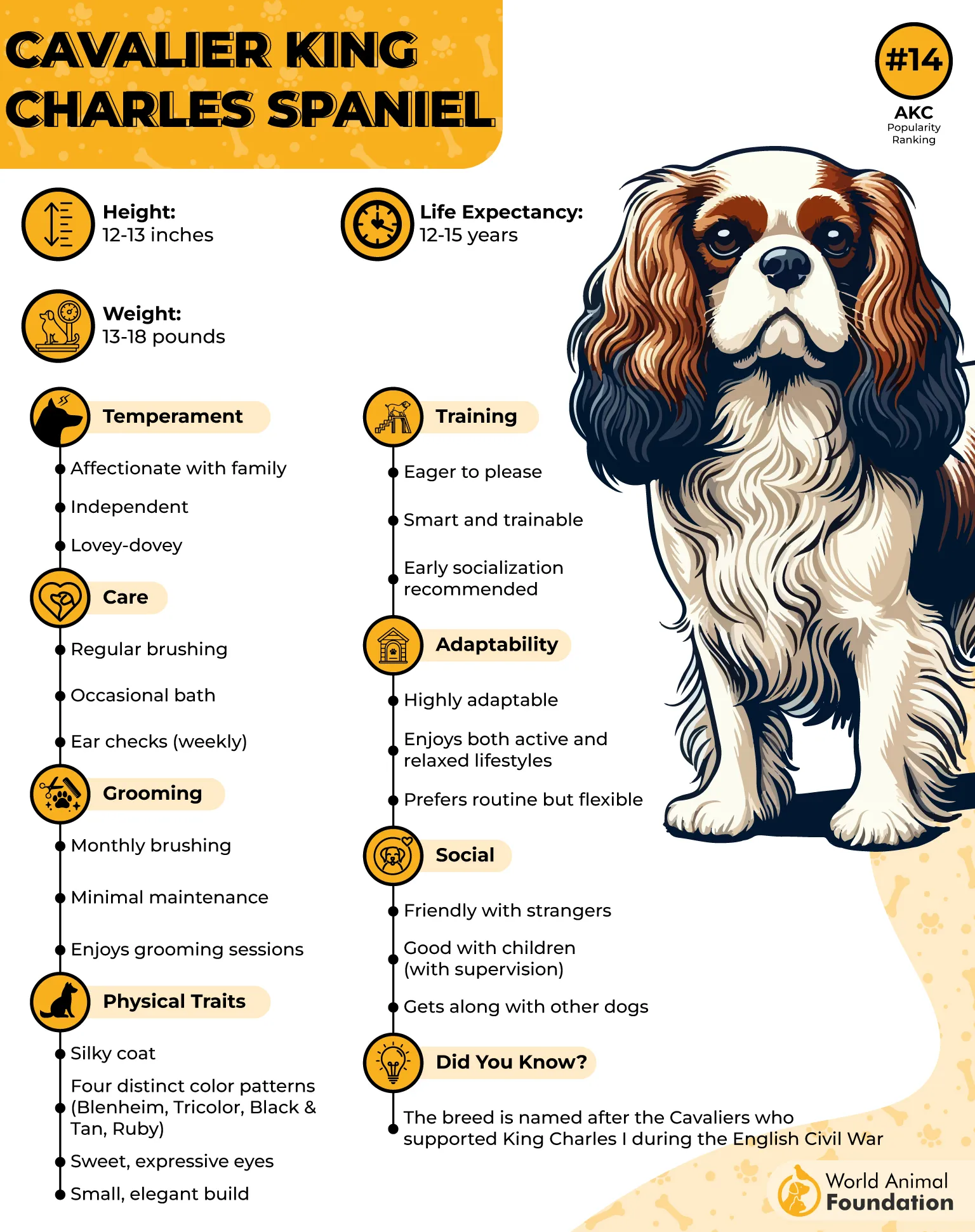
Originally bred as comfort companions, Cavalier King Charles Spaniels have a natural gift for offering love and emotional support. Their gentle spirit and ability to tune into human feelings make them especially well-suited for therapy work. Whether it’s sitting quietly beside someone or providing a warm nuzzle, their presence brings real comfort.
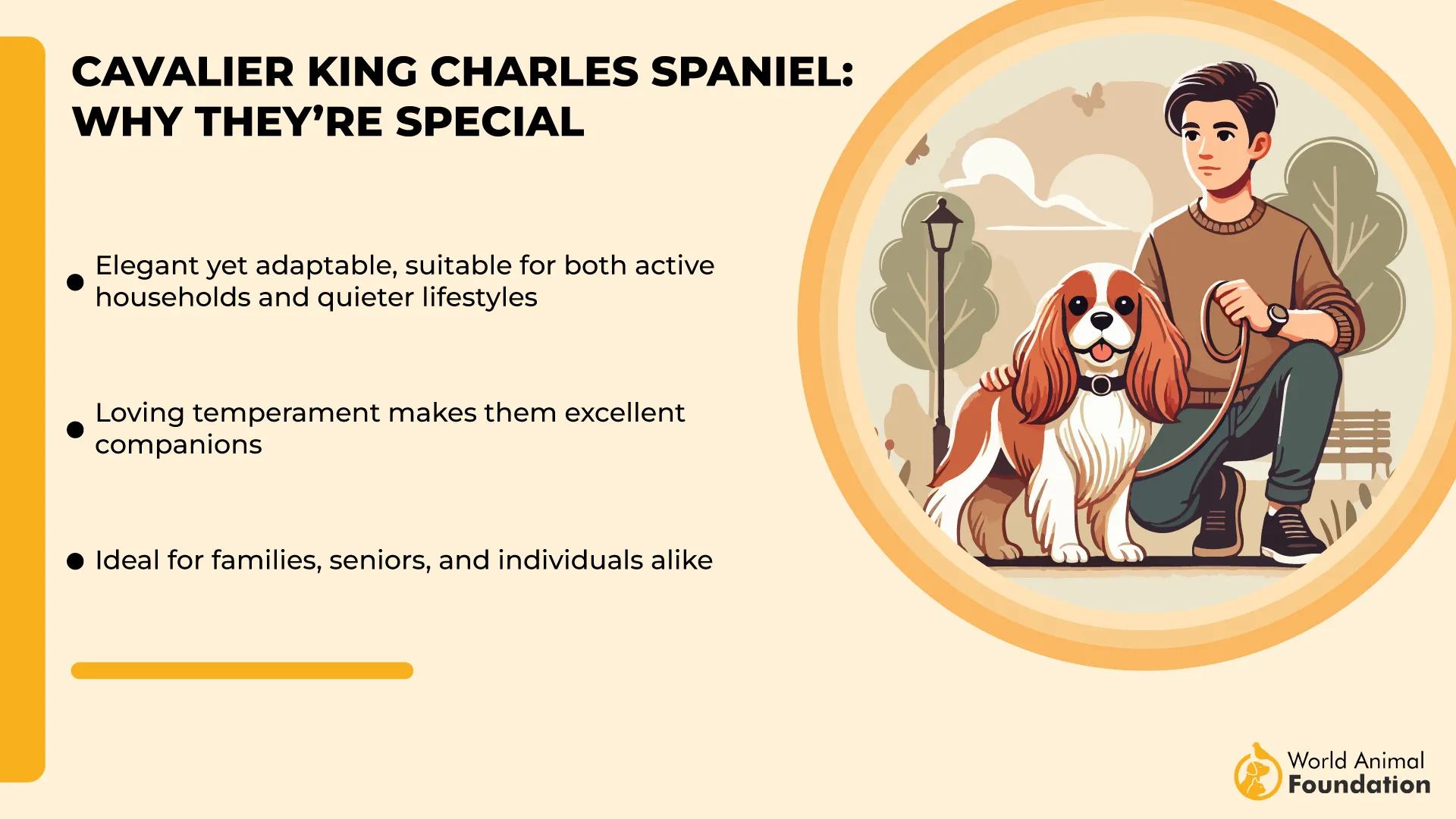
These little dogs are patient and incredibly intuitive, making them a good companion for therapy work to help people cope with anxiety, past trauma, or other mental disabilities. They often sense when someone is upset and instinctively respond with calm, comforting behavior—just when it’s needed most.
Cavaliers are devoted family dogs who love being close to their people. They’ll follow you from room to room, eager to stay connected and always up for a snuggle.
Whether it’s a quiet evening at home or a fun family outing, they’re happiest when included and loved, making them wonderful companions for individuals of all ages, from energetic kids to retirees seeking a loyal friend.
4. Poodle

Poodles are renowned for their intelligence, calm demeanor, and hypoallergenic coats, making them a top choice for emotional support, especially for allergy sufferers. Available in standard, miniature, and toy sizes, they adapt well to different living situations.
Their sharp minds and affectionate nature allow them to form strong bonds with their owners, providing comfort during difficult times such as anxiety or health challenges.
Thanks to their ability to connect deeply with human emotions, Poodles can sense when their owners are stressed or upset and respond with comforting behaviors. This empathy, combined with specialized training, makes them reliable therapy and assistance dogs.
Their gentle spirit and adaptability help them thrive in various environments, offering consistent emotional support. Beyond comfort, standard Poodles play a crucial role in alleviating anxiety and stress. Their presence can enhance the effectiveness of treatments like psychotherapy by creating a calming atmosphere.
They also help improve social interactions by drawing positive attention and easing social fears, especially for those sensitive to allergens or social anxiety. With their blend of intelligence and warmth, Poodles truly shine as emotional support companions.
5. Havanese
The Havanese is a small, intelligent, and sociable breed that’s quickly becoming a favorite family pet. Their affectionate and friendly nature, combined with their lapdog size, makes them excellent emotional support dogs. Studies even show that having a Havanese can help lower blood pressure and heart rate, boosting overall well-being.
Havanese dogs excel at PSD (Psychiatric Service Dog) tasks because they naturally bond with their owners and are highly attuned to human emotions. They can be trained to recognize anxiety, panic attacks, or PTSD symptoms, responding with comforting behaviors like pawing, nose nudging, or providing deep pressure therapy, states the Service Dog.
They can also remind owners to take medication, guide them to safety, and interrupt harmful behaviors, making them invaluable companions for people with PTSD, ASD, or ADHD.
While their small size limits physical tasks like balance support, Havanese dogs shine at retrieve-based jobs such as fetching medication or phones, making daily life easier. Their alertness also makes them excellent hearing assistance dogs, able to recognize and alert owners to important sounds like alarms and doorbells.
Medical alert training is more intensive but equally rewarding. Havanese can be taught to detect changes in blood sugar, heart rate, or epileptic episodes by recognizing subtle scent shifts. Their affectionate nature and trainability make them well-suited for this vital role.
Small but mighty Havanese dogs contribute significantly to the service dog community, not just through their task performance but through the love, companionship, and sense of purpose they provide to their handlers.
6. Bernese Mountain Dog
Bernese Mountain Dogs are big-hearted, intelligent companions who thrive on affection and connection. While they may be a little reserved around strangers, they’re typically gentle with children and other pets—just one of many reasons families love them, states PetMD.
Their calm and affectionate nature makes Berners one of the best therapy dogs. These gentle giants shine in environments like hospitals, nursing homes, schools, and mental health centers, where their soft presence brings comfort to those in need. Their “huggability” and social nature allow them to offer emotional support in a way few breeds can match.
When it comes to service work, Bernese Mountain Dogs bring more than just their sweet temperament to the table—they’re smart, trainable, and incredibly loyal. Their size and strength make them ideal for tasks like mobility support and balance assistance, especially for individuals with physical disabilities.
One key role Berners excel at is Deep Pressure Therapy (DPT), where their weight and warmth are used to help calm anxiety or bring someone back from a dissociative episode. They can also be trained to alert their handler to danger, whether that’s a home intruder, low blood sugar, or an oncoming seizure.
Their calm nature in public and devotion to their handler make Berners ideal psychiatric service dogs (PSDs), which are legally protected under the Americans with Disabilities Act. PSDs are allowed in public places like airplane cabins, restaurants, and stores, giving their owners greater freedom and independence.
There are real-world examples that show just how powerful a Bernese Mountain Dog’s presence can be. Take Teddy, for instance—winner of the AKC Therapy Dog Award. Alongside his handler, a retired police sergeant, Teddy works with K9 First Responders, comforting victims of crises and disasters. From schools to hospitals, Teddy’s uncanny emotional sensitivity has helped bring calm to people in their darkest moments.
7. Bichon Frise
The Bichon Frise is like a living puff of sunshine—cheerful, energetic, and full of charm. Known for their playful personality and love for attention, these little dogs were once circus performers, and it shows! They’re smart, social, and love to learn tricks, making them ideal for pet parents who enjoy an interactive and affectionate companion.
Thanks to their intuitive nature and eagerness to please, Bichon Frises can be excellent psychiatric service dogs (PSDs). With positive reinforcement, they can learn to respond to anxiety or panic episodes by pawing, nudging, or licking—offering comfort when it’s needed most.
They’re also well-suited for Deep Pressure Therapy, guiding their owners to a safe space and even providing light crowd control in overwhelming environments.
While their small size means they’re not ideal for physical support or mobility tasks, Bichons are enthusiastic retrievers. Teaching them to fetch important items like medication or your phone can be both helpful and enjoyable for these playful pups.
Despite their compact stature, Bichons can shine as medical alert dogs. Their affectionate personality and love for physical contact make them naturally in tune with their owners’ emotional and physical states. With proper training, they may detect changes in blood sugar and heart rate or even warn of oncoming seizures—tasks especially suited to long-muzzled breeds. However, exceptions like the Bichon certainly exist.
Their sharp hearing also opens the door to sound alert training. Bichons can learn to recognize doorbells, alarms, or ringing phones and notify their owners in personalized ways. With the right guidance, these small, spirited dogs can become mighty companions in more ways than one.
Conclusion
Choosing the right therapy dog means considering both the breed’s energy level and temperament to fit your lifestyle and mental health needs. Breeds like the Shih Tzu, French Bulldog, and Pug are often great for those seeking a low-maintenance companion, while Border Collies and other high-energy breeds may suit more active individuals.
More important than breed is the individual dog—a well-trained, well-mannered companion who can pass the Canine Good Citizen Test and provide consistent emotional support. Whether you’re adding a puppy, adopting a rescue, or welcoming a new family member, a certified therapy dog can be a powerful ally in managing mental health disorders through animal-assisted therapy.
With proper training and certification, these loving dogs become more than pets—they become trusted best friends and vital members of the family.


